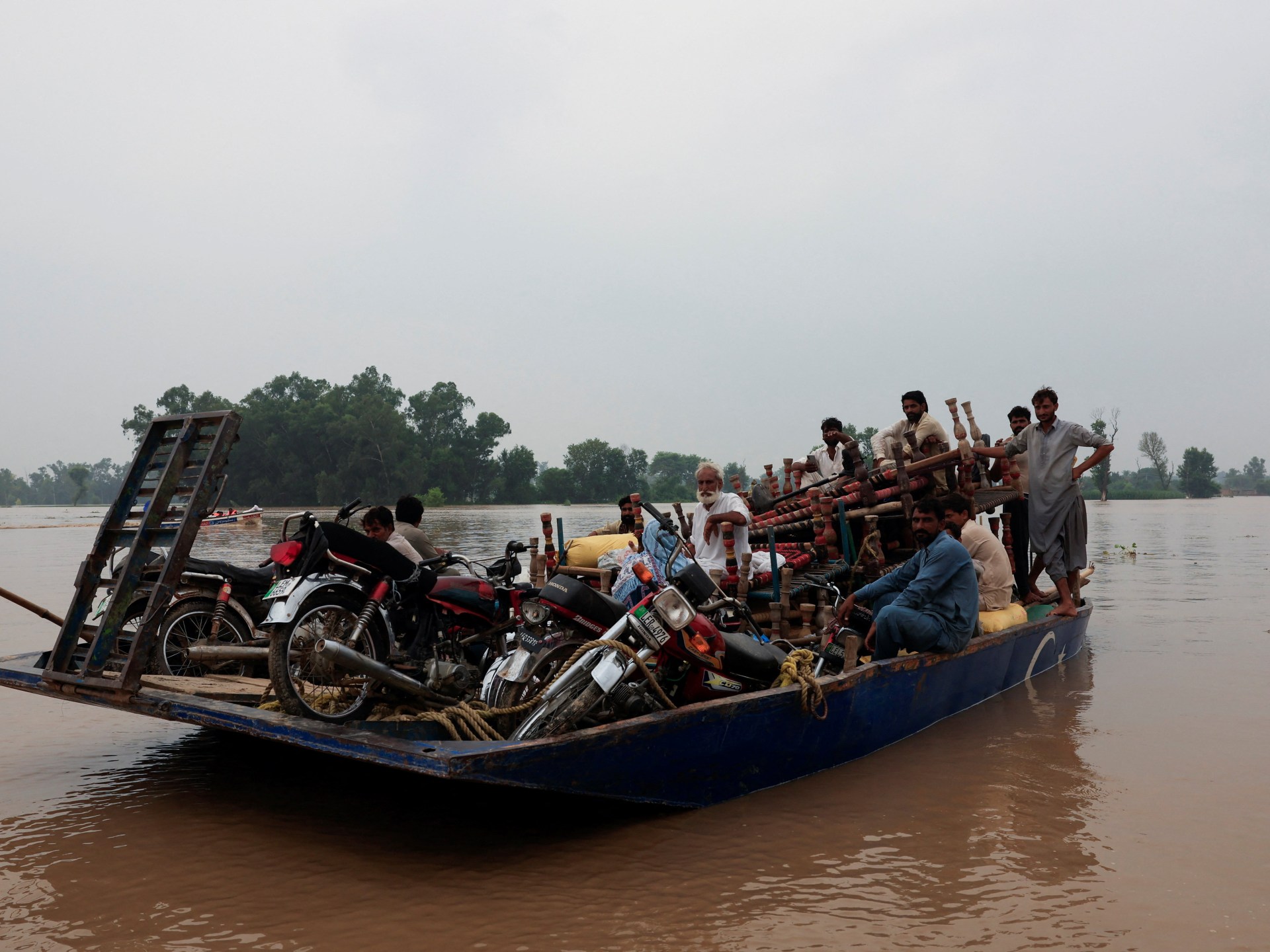According to a recent study, Pakistan, one of the nations most vulnerable to climate change, has seen increased monsoon rains this year due to global warming. In recent months, flash floods and landslides have erupted in the mountainous north and northwest due to downpours and cloudbursts.
After India released water from swollen rivers and its overflowing dams into Pakistan’s low-lying regions, residents in eastern Punjab also experienced unusual amounts of rain and cross-border flooding.
The largest flood in Punjabi history occurred during this. Two million people have been affected by the flood. The senior provincial minister for the province, Marriyum Aurangzeb, stated at a press conference on Sunday that this is the first time the Sutlej, Chenab, and Ravi have carried such high levels of water.
According to her, local authorities have been evacuating residents and using security and educational facilities as rescue camps.
People were also seen clambering into rescue boats and sailing across completely submerged farmland on Pakistani TV channels. What remained from damaged homes that are now abandoned was loaded onto boats by other people.
Pregnant women have begun to seek refuge from the floods in a former classroom in the area, which is now a makeshift relief camp.
Shumaila Riaz, 19, endured cramps during her first pregnancy while spending the past four days at the relief camp. She is now seven months along.
She told the AFP news agency, “I wanted to think about the child I am going to have, but I am not even certain about my own future.”
Women huddled in the overcrowded school, which has hosted more than 2, 000 people, surrounded by mud and stagnant rainwater, clad in dirty clothes and had unbrushed hair.
While the region’s seasonal monsoon brings in farmers’ rely on rainfall, climate change is making the phenomenon more unpredictable and deadly.
Prior to a significant wave erupting from the Chenab River in Multan, authorities have also installed explosives on five important embankments to divert water away from the city, if necessary.
Amir Kareem Khan, the commissioner of Multan, claimed that teams tried to persuade residents who had not yet evacuated to do so while using drones to monitor low-lying areas.
Deputy Commissioner Wasim Hamad Sindhu appealed to people seeking shelter in government-run camps and declared, “We cannot fight it, we cannot stop it.
The Foreign Ministry is also “collecting data regarding India’s deliberate release of water into Pakistan,” Aurangzeb continued on Sunday. India did not respond right away.
The first official diplomatic exchange between the rival countries since a crisis in May brought them close to war with India last week, alerting Pakistan to the possibility of cross-border flooding.
Punjab, the nation’s top wheat producer, accounts for around 150 million people in Pakistan.
Source: Aljazeera

Leave a Reply